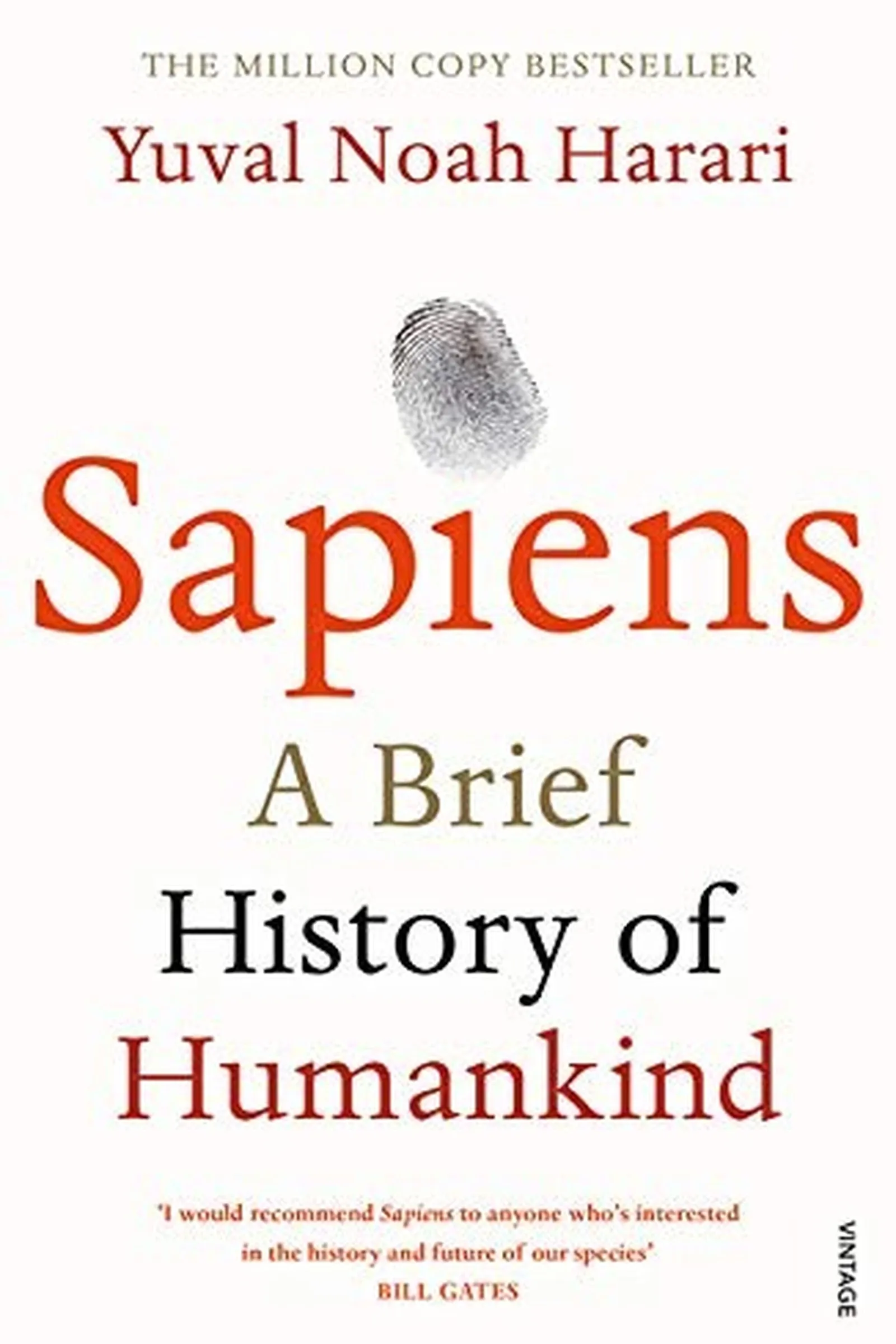Sapiens, Yuval Noah Harari, 2011
- Author: Yuval Noah Harari
- Genre: Science
- Publisher: Harper
- Publication Year: 2011
- Pages: 464
- Format: Paperback
- Language: English
- ISBN: 978-0062316097
- Rating: 4,4 ★★★★★
Sapiens Review
About
Published in 2011, Yuval Noah Harari’s Sapiens: A Brief History of Humankind is a sweeping narrative of our species—from foraging bands to global empires. It’s not just history; it’s philosophy disguised as anthropology. Harari examines how storytelling, belief, and cooperation turned a clever ape into the planet’s dominant force. Provocative and sharply written, it challenges the reader to see humanity as both miracle and mistake.
Overview
Harari divides human history into major revolutions: the Cognitive (language and imagination), Agricultural (settlement and hierarchy), and Scientific (knowledge and power). Each shift redefined what it means to be human. He argues that myths—religion, money, nations—bind societies more effectively than biology ever could. Written with clarity and irony, the book is both thrilling and unsettling: progress, it suggests, is not always synonymous with happiness.
Summary
(light spoilers) The narrative begins 70,000 years ago, when Homo sapiens began imagining—gods, stories, futures. From there, Harari moves briskly through agriculture, empire, capitalism, and biotechnology. He connects macro history to personal psychology, showing how human cooperation depends on shared fictions. In its closing chapters, Sapiens peers into the future—where artificial intelligence and genetic engineering threaten to redefine humanity once again. The tone is simultaneously awed and skeptical: progress has made us powerful, but not necessarily wise.
Key Themes / Main Ideas
• Storytelling as survival — myths create civilization.
• Power and illusion — progress built on shared belief.
• Human contradiction — empathy and destruction intertwined.
• The future of evolution — self-directed change and its costs.
• Happiness and meaning — freedom without fulfillment.
Strengths and Weaknesses
• Strengths — Engaging, ambitious, and intellectually daring.
• Strengths — Connects vast history to intimate insight.
• Weaknesses — Broad generalizations at times oversimplify nuance.
• Weaknesses — Harari’s tone can feel detached, but that distance fuels perspective.
Reviewed with focus on themes, audience, and takeaways — Yuval Noah Harari
| pa_author | Yuval Noah Harari |
|---|---|
| ISBN | 978-2-479-25568-8 |
| pa_year | 1980 |
| Pages | 146 |
| Language | English |







